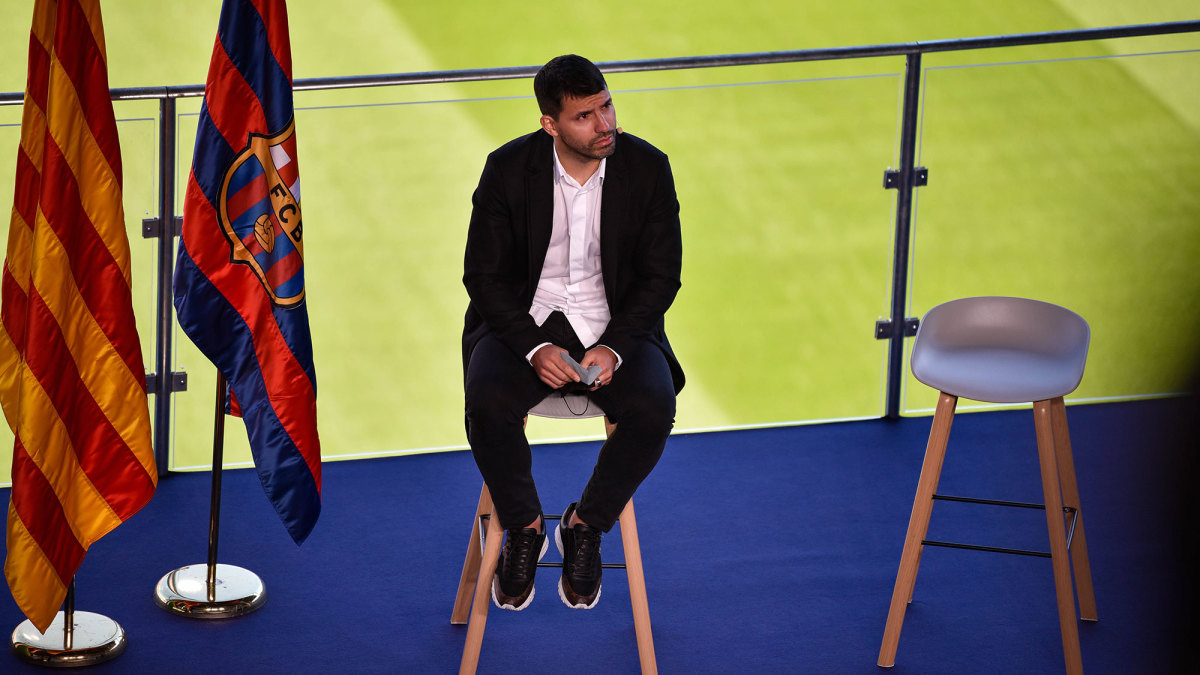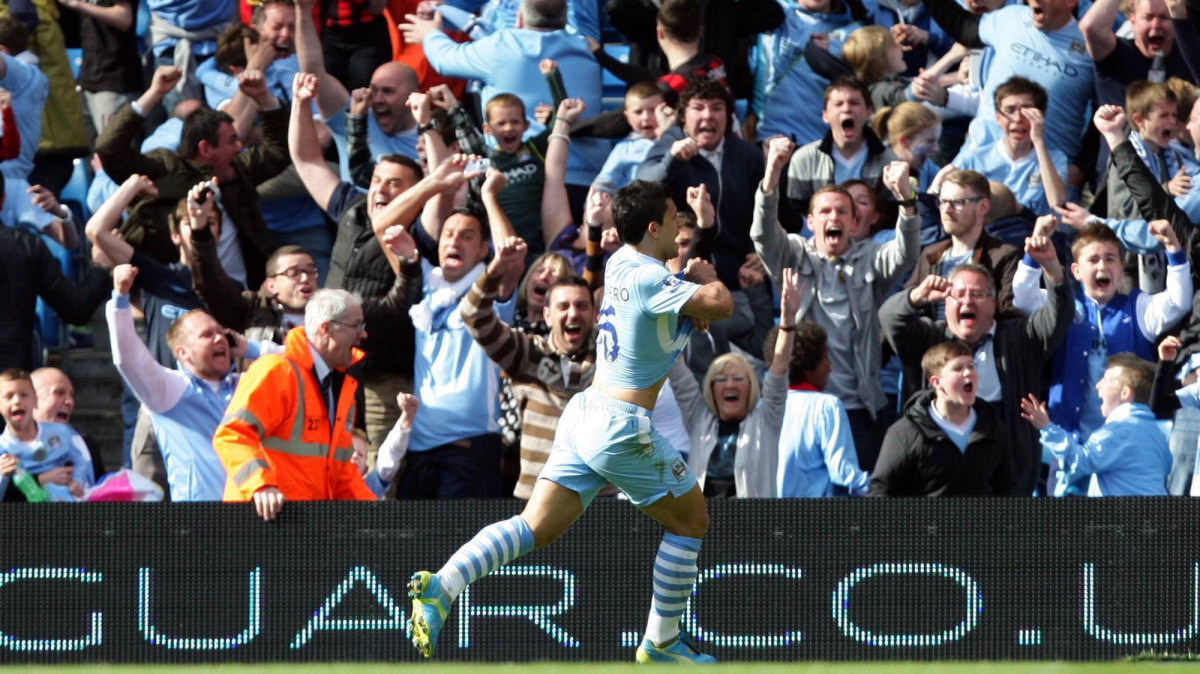Sergio Agüero’s Sad and Sudden Ending

Briefly, it seemed like Barcelona might offer Sergio Agüero the perfect finale to his career (with maybe a year back at Independiente in his native Argentina to finish). His relationship with Pep Guardiola had never been entirely straightforward, and as opportunities for him dried up at Manchester City, a reunion with his old friend Lionel Messi seemed ideal. But financial pressures at the club meant there was no reunion, with Messi unable to return as planned, and less than half a season later, due to a heart condition, Agüero's career is over. For a player responsible for the greatest climax to a Premier League season, it is a sadly anticlimactic way to bow out.
Football has always been Agüero’s life. “Football surrounds you in Argentina,” he once said. “I always had the ball at my feet. At any moment of the day we’d be playing, in the sun or after dark. I’d spend hours and hours out there. Time was never a factor.”
Time, ultimately, wasn't the chief factor in Agüero ending his professional career on Wednesday at a press conference at Camp Nou. He is only 33. On Oct. 30, he played his last match, forced off after suffering chest pains four minutes before halftime in Barcelona's draw against Alavés. That was subsequently diagnosed as a cardiac arrhythmia, ultimately forcing him to make the decision.

Agüero, who goes down as one of the greatest players in Premier League history, came from very little. He grew up in poverty in a slum in the south of Buenos Aires. There were days when dinner was maté and stale bread. In that sense he fit perfectly the influential model of the pibe, the urchin kid who learned the game on the streets, outlined by Borocotó, the editor of El Gráfico, in 1928.
When Agüero was nine, he joined Independiente. When he was 15, one month and three days, he made his debut against San Lorenzo on the final day of the 2002–03 clausura, supplanting Diego Maradona as the youngest player ever in the Argentine top flight. That link with Argentine football nobility was confirmed with a brief marriage to Maradona’s daughter, with whom he had a son, Benjamin.
There was a sense that Agüero’s inclusion was a stunt by coach Oscar Ruggeri, and he played only two games the following season and eight the year after that. But in 2005 he was part of the Argentina squad that won the Under-20 World Cup. He was mainly a substitute but became good friends with Messi, with whom he played a lot of PlayStation. He was then a regular starter as Argentina retained its title two years later and again, alongside Messi, as it won Olympic gold in '08, scoring twice against Brazil in the semifinal.
Once he became a regular at the club level, he was remarkably consistent. He left Independiente for Atlético Madrid in 2006 and, after scoring six league goals in '06–07, he became the main goalscorer after the sale of Fernando Torres to Liverpool. For 13 successive seasons, four at Atlético, then nine at Manchester City, he scored at least a dozen goals, and that despite having to change his game to become a more complete forward after Guardiola became City's manager in '16. He is Man City's greatest scorer ever, with 260 goals in his time at the Etihad.
And among those goals, of course, was one of the most famous of all, as, with the clock on 93 minutes and 20 seconds in the final game of the 2011–12 season, he ran onto Mario Balotelli’s pass and smashed home the goal that won Manchester City its first league title in 44 years.

But last season, partly because of injury and partly because of Guardiola’s tactical demands, Agüero started only 12 league games. His contract was not renewed, giving him the opportunity to join Barcelona on a free transfer. There were signs of what his linkup with Messi could still achieve as Argentina won the Copa América this past summer, but they were not to play together at club level after all, as Messi left for PSG with Barcelona unable to afford his wages due to its financial crisis.
Agüero started only two games for his new—and as it turns out, final—club. His last goal, somewhat fittingly, came in the waning moments of stoppage time in El Clásico, albeit in defeat.
"I have decided to stop playing football; it is a very difficult moment," a tearful Agüero said at Barcelona's stadium Wednesday, with Guardiola among those in attendance to pay tribute (Messi, unable to attend, penned a tribute to his friend on Instagram). “I decided around 10 days ago after having done everything possible in case there was a chance ... but it wasn't to be. It's taken me time to digest it.”
"I have decided to stop playing football."
— FC Barcelona (@FCBarcelona) December 15, 2021
— @aguerosergiokun pic.twitter.com/kVpislPA9K
For 18 years, Agüero has been a professional footballer. His life has been structured around the training ground and the stadium. He has always been an utterly dedicated professional, barely ever seen in public outside a football context, his main diversion seemingly still the PlayStation. That his nickname, Kun, derives from childhood and a cartoon character called Kum-Kum, suggests the extent to which football has kept him in a state of suspended development. This will be a huge wrench for him, and there are obvious risks in having to adapt to a life beyond the struct routines of football.
But amid that concern and the sadness at his premature retirement, there are also the memories of what a majestic goalscorer he was.
“I can be very happy with the titles I have won,” Agüero said. “Anyone can always give a bit more, but I think I did everything as best I could be myself and my clubs.”
More Soccer Coverage:
